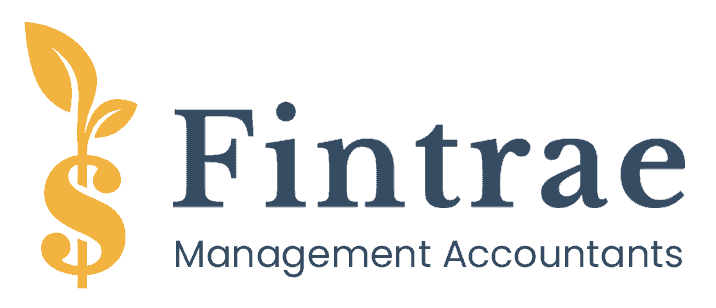Bookkeeping cost for small business generally fall between $400 and $1,200 per month. The exact price depends on factors like the number of monthly transactions, the size of your team, and the complexity of your operations. Some bookkeepers charge by the hour, typically between $20 and $45, while highly experienced or specialized professionals may charge more.
Many businesses opt for flat-rate monthly plans or tiered service packages. These often include core bookkeeping tasks like bank reconciliations, expense tracking, and invoice management, with add-ons such as payroll processing, inventory tracking, and financial reporting.
While doing your own bookkeeping might seem like a way to cut costs, it often comes at the expense of time and accuracy. Errors, missed deadlines, and inefficient recordkeeping can lead to bigger financial issues down the line.
Working with a provider like Fintrae International offers a smarter alternative. Their remote-friendly bookkeeping services are designed to fit your budget and workflow, giving you reliable, up-to-date financial records and room to scale. As your business grows, Fintrae can also support you with deeper financial insights and strategic guidance.
Typical Bookkeeping Cost for Small Businesses

As mentioned above, monthly bookkeeping costs for small businesses usually fall between $400 and $1,200. This range depends heavily on factors like the size of the business, the volume of transactions, and the complexity of tasks involved. Some businesses might pay as little as $320, especially if their bookkeeping needs are straightforward, while others with more complex operations, such as inventory tracking or multiple payrolls, can see fees up to $2,500 or more each month.
The number of bank accounts, credit cards, and payroll processing all influence pricing. Most small business bookkeeping services charge a flat monthly fee, which simplifies budgeting and covers a set amount of work. On the other hand, hourly rates vary from about $20 to $45 per hour based on the bookkeeper’s experience and location. A few specialized bookkeepers with advanced skills may charge between $60 and $100 per hour, but this is less common for small business needs.
Comparing these costs to hiring an in-house bookkeeper shows that full-time salaries typically range from $45,000 to $65,000 annually, which means outsourcing bookkeeping can often be more cost-effective once you factor in benefits and overhead. Lastly, costs also reflect the quality of the service and software used, as well as whether bookkeeping is done remotely or in person. For example, a business using cloud-based software like QuickBooks Online might pay less than one requiring manual data entry and on-site visits.
| Cost Aspect | Range/Details | Notes |
| Monthly bookkeeping costs | $400 to $1,200 | Depends on business size, transaction volume, complexity |
| Lowest reported monthly cost | $320 | For very small or simple businesses |
| Highest reported monthly cost | $2,500 | For businesses with complex needs |
| Hourly rates | $20 to $45 per hour | Typical range, influenced by experience and location |
| Specialized hourly rates | $60 to $100 per hour | Charged by bookkeepers with advanced skills or certifications |
| In-house bookkeeper annual salary | $45,000 to $65,000 | Includes benefits; useful to compare outsourcing |
| Pricing approach | Flat-rate monthly fees | Most common for small business bookkeeping services |
| Additional pricing factors | Number of bank accounts, credit cards, payroll processed | More complexity leads to higher costs |
| Outsourcing vs. hiring | Outsourcing can save money | Factoring in salary, benefits, and overhead |
| Service delivery mode | Remote vs. in-person | Remote often costs less due to lower overhead |
Common Bookkeeping Pricing Models
Small businesses usually come across a few standard pricing models when looking for bookkeeping services. One popular choice is monthly flat-rate pricing. This covers a specific number of transactions and services. As your business grows or becomes more complex, the rate usually goes up to reflect added tasks like payroll, inventory tracking, or managing multiple accounts.
Hourly billing is another model, where you’re charged based on time spent. This is useful if your bookkeeping needs vary month to month. However, it can be harder to predict monthly costs.
Tiered packages are also common. A basic plan might include bank reconciliations and simple financial reports, which works well for very small businesses. More advanced tiers can include payroll, inventory, multiple accounts, and frequent reporting.
Some providers offer add-ons like tax preparation or forecasting for an extra fee. Many packages also include bookkeeping software setup and ongoing support, which can influence the price.
The right pricing model depends on your business size, financial complexity, and how much support you want. If you value predictability, flat rates or subscription-style packages are ideal. If your needs change often, hourly or flexible packages may work better.
What Affects Your Bookkeeping Cost?

Several key factors influence how much you’ll pay for bookkeeping services.
Transaction volume is a major one. More transactions mean more time needed to keep records accurate. Businesses that manage payroll, multiple accounts, invoicing, or inventory will typically pay more due to the added complexity.
Your industry can also impact cost. Retail and food businesses often pay higher fees because of inventory and compliance demands.
Bookkeeper experience and credentials matter too. More qualified professionals usually charge more, but they bring stronger insights to the table.
Location plays a role. Remote bookkeepers may charge less than local ones, thanks to lower overhead. Cloud-based tools like QuickBooks or Xero can streamline tasks and reduce long-term costs, even though set up might come with added fees.
How often you need reports or reviews also affects pricing. Extras like budgeting support or tax filing will increase your total cost. Some automation tools can lower ongoing fees but may require upfront investment.
Many providers offer custom packages tailored to your needs, so what you pay depends on exactly what you need and how often you need it.
Costs of Doing Your Own Bookkeeping
Doing your own bookkeeping might seem like a free option, but it comes with hidden costs that many small business owners don’t realize at first. The biggest expense is time. Managing your books takes away hours that could be spent on sales, marketing, or growing your business. For example, learning how to use bookkeeping software and keeping up with tax rules can involve a steep learning curve and ongoing effort.
In addition, most DIY tools require monthly subscriptions, which add to your expenses even if they seem low at first. Mistakes made in bookkeeping can lead to costly tax errors, missed deductions, or cash flow problems, which might result in fines, audits, or delays in loan approvals. Small errors tend to build up over time, making a professional review necessary to ensure accuracy.
While DIY bookkeeping can work for very simple or very small businesses, it usually becomes impractical as the business grows or gets more complex. Outsourcing bookkeeping frees up your time, reduces stress, and helps avoid costly mistakes, letting you focus on what you do best.
How Fintrae Makes Bookkeeping Affordable

Fintrae keeps bookkeeping affordable by offering flat-rate monthly packages tailored specifically for small businesses, typically ranging from $400 to $2,000 depending on your business’s complexity and transaction volume. Instead of charging surprise fees, their pricing scales smoothly if you need payroll processing, inventory management, or handle multiple bank accounts.
Fintrae uses cloud-based software and a remote-first approach, which cuts overhead costs and passes those savings directly to you. This setup also means you get flexible service delivery that fits your schedule and needs. Plus, you have access to experienced bookkeepers backed by Virtual CFO support when you want strategic financial guidance.
Fintrae’s transparent pricing ensures no hidden charges, making it easier to budget and plan. Their blend of smart technology and human expertise delivers accurate, efficient bookkeeping without breaking the bank. If you’re unsure which package fits your business best, Fintrae offers free consultation calls to help match you with the right level of service.
Book a Free Financial Consult with Fintrae Today
Scheduling a free consultation with Fintrae is a smart first step to get your bookkeeping and financial management on the right track. During the consultation, you’ll discuss your business size, transaction volume, and the complexity of your financial needs with Fintrae’s experts. This helps uncover the right package tailored specifically for you, whether you need basic bookkeeping or more advanced services like payroll and inventory management.
You’ll also learn how virtual CFO services can add strategic value beyond simple bookkeeping, helping you make smarter financial decisions. If you have questions about bookkeeping software or how to integrate it with your current systems, Fintrae can guide you through that too. Because Fintrae operates with a remote-first model, their services save you both time and money without sacrificing quality.
You’ll get a no-obligation quote that fits your unique business requirements. Plus, you’ll get a clear view of the onboarding process and timeline so you know exactly what to expect when you start working with Fintrae International. They’ll also explain how ongoing support and regular reporting will be handled to keep your finances organized and cash flow steady. Taking this step with Fintrae means moving toward better financial clarity and control, freeing you up to focus on growing your business.
Frequently Asked Questions
1. What types of bookkeeping services might a small business need?
Small businesses often need services like recording daily transactions, managing invoices, reconciling bank statements, preparing financial reports, and tracking expenses. These help keep the business’s finances organized and clear.
2. How does the size or complexity of my business affect bookkeeping needs?
Larger or more complex businesses usually have more transactions, multiple accounts, and maybe employees, which means bookkeeping is more detailed and time-consuming. Simpler businesses with fewer transactions might need only basic bookkeeping tasks.
3. Can bookkeeping help with tax preparation and planning?
Yes, good bookkeeping keeps your financial records accurate and up to date, making tax time easier. It helps identify deductible expenses and ensures you have the necessary documents to file taxes properly and avoid issues.
4. What are the benefits of using cloud-based bookkeeping software?
Cloud-based bookkeeping lets you access your financial data anytime, anywhere, and often allows real-time updates. It can be easier to collaborate with your bookkeeper or accountant, reduce errors, and improve security compared to manual bookkeeping.
5. How can I tell if my bookkeeping is accurate and reliable?
Accurate bookkeeping means your records match your bank statements and financial documents without errors. Regular reviews, reconciliations, and using software with checks can help keep your bookkeeping trustworthy and up to date.




